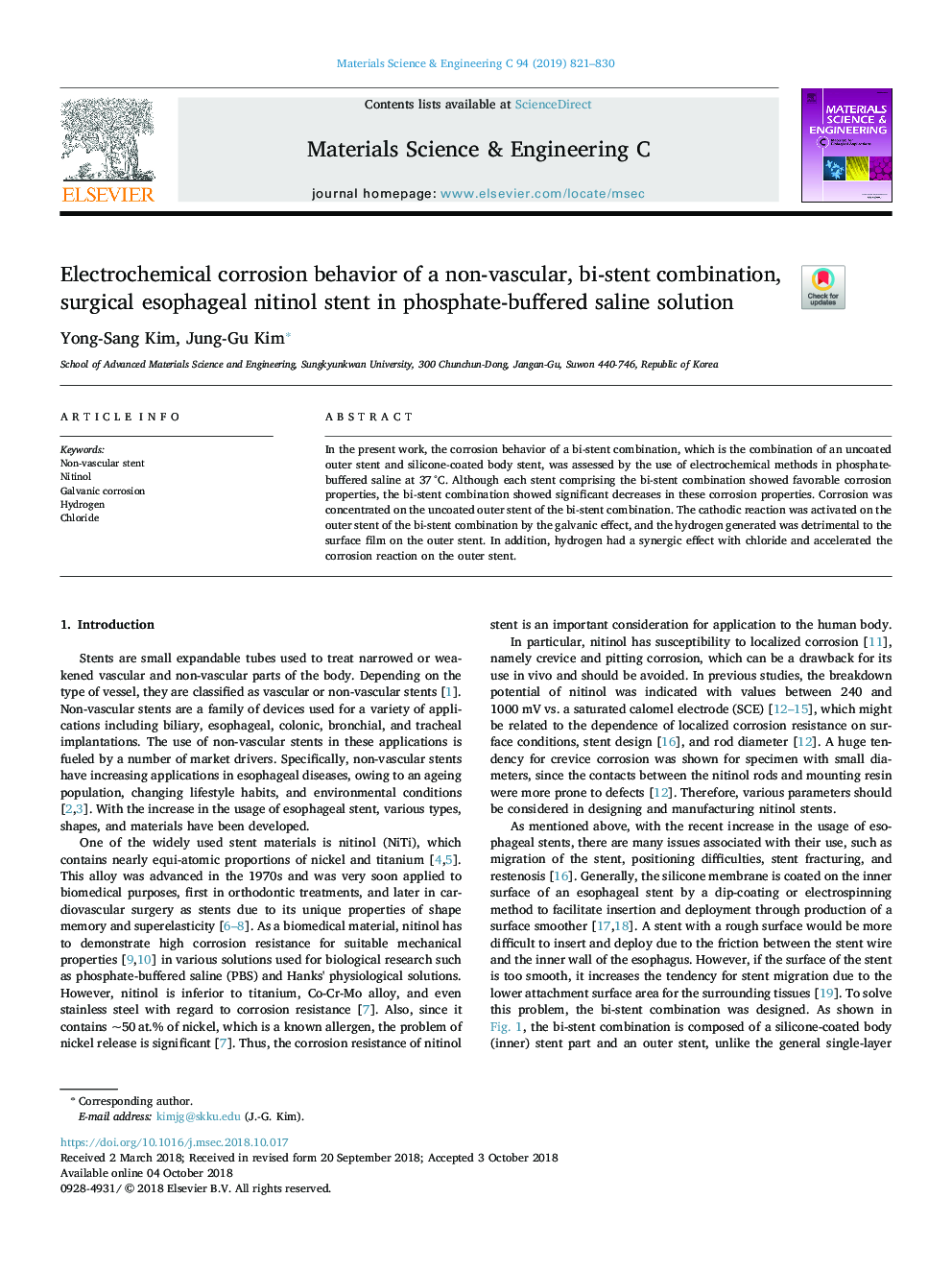| Article ID | Journal | Published Year | Pages | File Type |
|---|---|---|---|---|
| 11026879 | Materials Science and Engineering: C | 2019 | 10 Pages |
Abstract
In the present work, the corrosion behavior of a bi-stent combination, which is the combination of an uncoated outer stent and silicone-coated body stent, was assessed by the use of electrochemical methods in phosphate-buffered saline at 37â¯Â°C. Although each stent comprising the bi-stent combination showed favorable corrosion properties, the bi-stent combination showed significant decreases in these corrosion properties. Corrosion was concentrated on the uncoated outer stent of the bi-stent combination. The cathodic reaction was activated on the outer stent of the bi-stent combination by the galvanic effect, and the hydrogen generated was detrimental to the surface film on the outer stent. In addition, hydrogen had a synergic effect with chloride and accelerated the corrosion reaction on the outer stent.
Related Topics
Physical Sciences and Engineering
Materials Science
Biomaterials
Authors
Yong-Sang Kim, Jung-Gu Kim,
